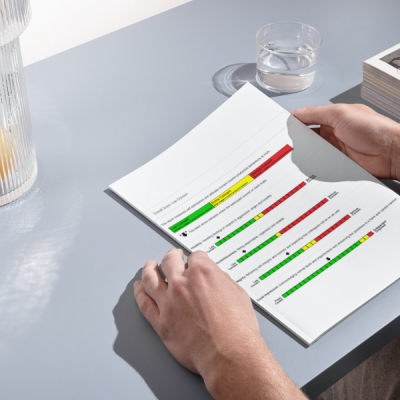How to look for emotional intelligence in your candidates?
12 Aug 2021Emotional intelligence is defined as the ability to monitor one’s own and other people’s emotions, to discriminate between different emotions and label them appropriately, and to use emotional information to guide thinking and behaviour. It comes down to four abilities: perceiving, using, understanding and managing emotions. It is clear that being proficient in these abilities is highly sought after in people working in care roles, but how can you spot people high in emotional intelligence?
Different models of Emotional Intelligence
Emotional Intelligence has been the topic of research for many years resulting in different models, such as: The Ability Model, the Mixed Model and the Trait Model. This last model is the focus of this post as it is measured by self-report and linked to the Big 5 Model, which is the basis of our Personality assessment.
Trait Emotional Intelligence
Trait Emotional Intelligence (Trait EI) refers to a person’s self-perception of their emotional abilities. Emotional self-efficacy. It has been linked to outcomes in clinical, educational and organisational settings. For example, high trait EI pupils tend to have fewer unauthorised absences and are less likely to have been expelled from school due to rule violations, compared to their low trait EI peers. Trait EI also influences children’s peer relations at school and decreases the likelihood of aggressive and delinquent behaviour. Furthermore, high trait EI facilitated prosocial behaviour and prevented antisocial behaviour in primary-aged children and similar results have been obtained in samples from different countries and age groups.
Trait EI in the Workplace
Trait EI predicts important outcomes in the workplace. Perhaps the most robust evidence comes from meta-analyses confirming its strong positive effects on job performance. Specifically, high trait EI was associated with lower levels of stress and higher levels of perceived job control, satisfaction, and commitment. It has also been linked to a higher level of commitment to the employer.
Linking Trait EI to the Big 5
So is it possible to use the insights from the Care Advantage Personality Assessment to find out if a person has high Trait EI? It possibly is! Research has shown that there are strong correlations between certain traits of the Big 5 and Trait EI. Specifically, Neuroticism (in our assessment “Stable”), followed by Extroversion and Conscientiousness, as well as Agreeableness (Tough Minded) and Openness (Conventional). Being aware of these links can help gain even more insight into your candidates, not only about their 5 personality traits, their team orientation, but also their trait Emotional Intelligence.
Contact us to find out more.
With thanks to the following sources:
Wikipedia | Theory and Applications of Trait Emotional Intelligence | Relationships between trait emotional intelligence and the Big Five | The Relationship between Trait Emotional Intelligence and Personality





